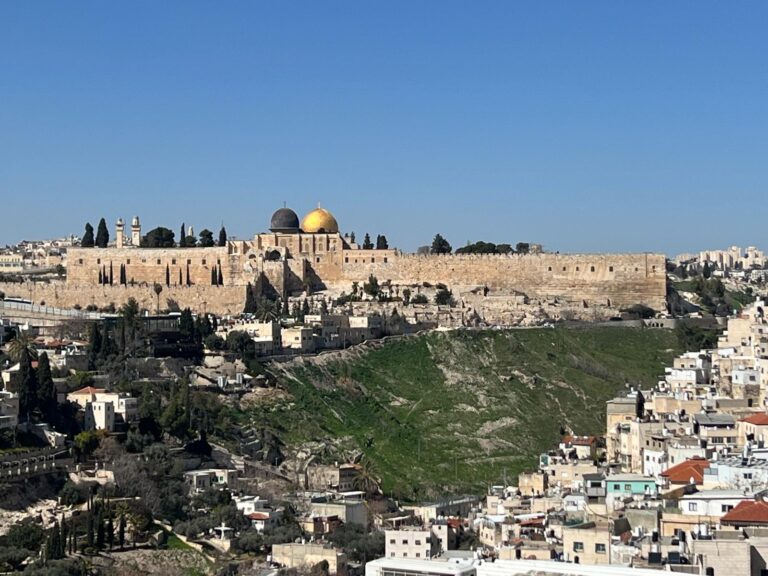The Twin Redemptions of Speech and Jerusalem
In our parsha we read about the horrible oppression of the Jewish people in Egypt. The Torah describes that the Egyptians worked them to the point of exhaustion and murdered them. One would assume that the focus of this era in Jewish history is the physical labor, the oppression and the threat to their physical lives.
The books of Chassidut, however, describe the Egyptian exile in additional terms. Following the teachings of the Zohar and Arizal, they teach that in Egypt “speech” was in exile. Therefore, in the parsha, the Jewish people cry out wordlessly in pain, not directing their voice to anyone. Moshe himself argues to God that he “is not a man of words” and that he has a speech impediment. This teaches us that the Jewish people were not in control of their faculty of speech.
Therefore, the redemption from this slavery and exile consists of talking. The first place the Jewish people camp is called “Pi HaChirot” literally translated as “Mouth of Freedom.” The mitzvah of the night of the seder when we relive the Exodus is to talk endlessly about the miraculous redemption. In addition, the climax of the redemption from Egypt is when God spoke the “Aseret HaDibrot” which literally translates as “The Ten speeches/statements.”
What does it mean for speech to be in exile and to be redeemed? The Sefat Emmet explains that speech allows one’s hidden thoughts and feelings to be expressed and revealed into the world. The same applies to God’s speech. God created the world through speech and we are therefore supposed to feel, sense and experience God through the medium of this world. Speech being in exile refers to a state in which God’s presence is not revealed for all to see. The redemption of speech
means that once again we will be able to look upon the world and see God’s inner thoughts “speaking” to us through it.
The same is true regarding our current redemption. Rav Kook writes that “the value of speech is becoming increasingly revealed to me, speech is leaving its exile.” According to the Sefat Emmet this means that we need to become increasingly aware of God “speaking” with us through all sorts of worldly phenomena. Elsewhere, Rav Kook writes that the value of speech can only be revealed in the Land of Israel.
Rav Yehoshua Shapira explains that this process reaches a climax regarding Yerushalayim. In Yeshayahu’s iconic words, the redemption of YErushalayim will begin with speech:
“Console, console My people,” says your God.
Speak to the heart of Yerushalayim and call to her, for she has become full [from] her host, for her iniquity has been appeased, for she has taken from the hand of the Lord double for all her sins.
The redemption begins with speaking to the heart of Yerushalayim. It is in this city that we can readily sense that God is speaking to us through its stones and history. When we are attentive to listen to God’s voice speaking to us through Yerushalayim we will merit the redemption of both speech and of Yerushalayim.



